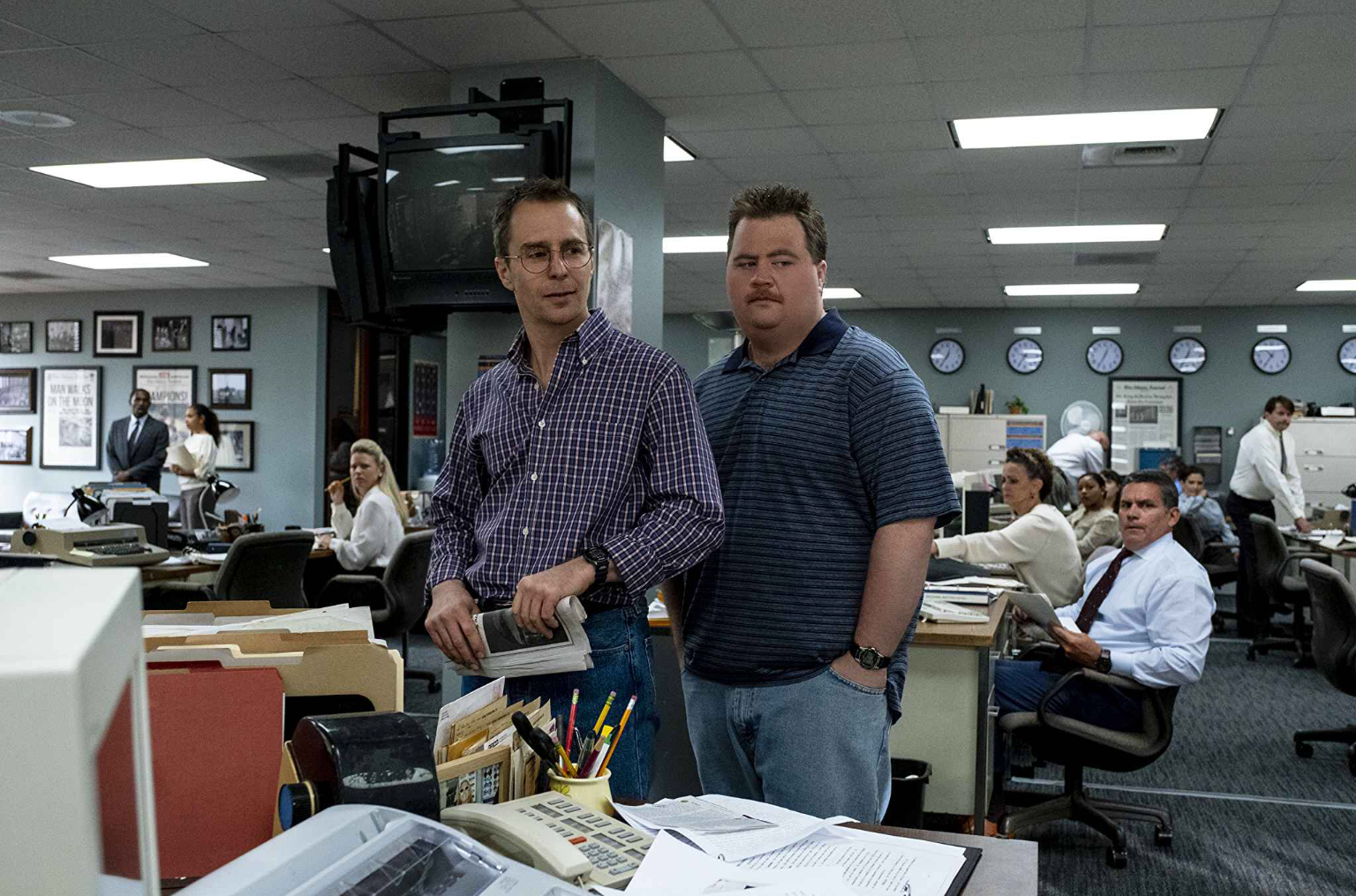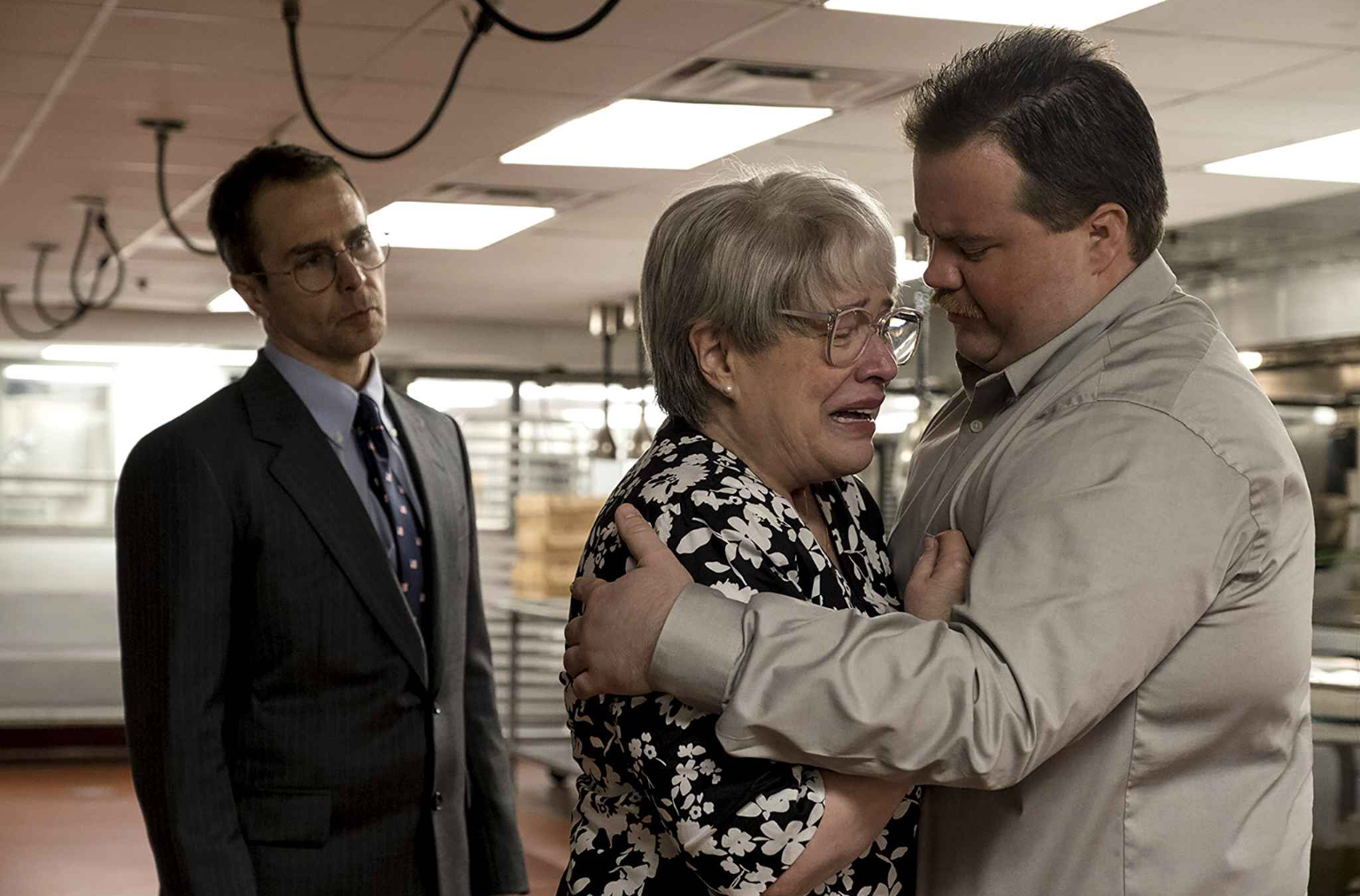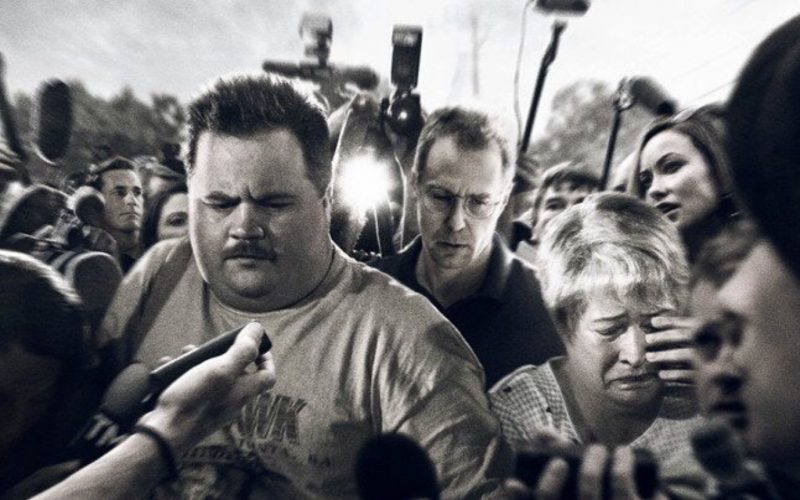Richard Jewell (2019).
At almost ninety years of age, most of us would probably be happy just to be alive and in possession of our faculties, but amazingly Clint Eastwood is still out there making movies. After starring in and directing 2018’s The Mule, he finds himself back behind the camera with his latest offering, Richard Jewell.
Based on the true story of the titular character, what’s on offer here is actually quite relevant to the media’s attitudes of today, despite the events of the film taking place in 1996.

For those not familiar with the tale of Richard Jewell (Paul Walter Hauser), he was a security guard working at an outdoor music event during the night time celebrations of the Atlanta Olympic Games. After finding a suspect, discarded back pack, Jewell not only alerted nearby police officers, but also took control of ushering crowds away from the perceived danger, prior to the device inside it exploding and injuring many people present. More importantly his actions saved many more from serious and no doubt, fatal injury. An overnight hero, Jewell was instantly the darling of the press, but this soon came crashing down around him when the FBI not only began to suspect him of planting the device in the need of falsely claiming the mantle of a hero but also leaked this information to the press.
Now with Jewell the number one suspect, he was open to public scrutiny with his whole life being put under the microscope. This naturally didn’t just affect him and his mother Bobbi Jewell (Kathy Bates) also faces the strain of her home being placed under siege from the press whilst she struggled to protect her adult son.

Thankfully for Jewell he has further support in the form of his defence lawyer Watson Bryant played by the always dependable Sam Rockwell, who is forced to tread a legal minefield set up by the FBI’s lead investigator, Tom Shaw (John Hamm) and take the press head-on thanks to the breaking of Jewell’s suspected involvement from reporter Kathy Scruggs (Olivia Wilde).
The storyline element that is portrayed between Shaw and Scruggs has already (rightly) come under scrutiny since the film’s American release due to the fact that it depicts Scruggs trading sex with Shaw to get the scoop on Jewell being the suspect, which all indications seem to point to being completely fictitious. Regarding this particular element of the story, it seems something of a mystery as to why the filmmakers ran with this narrative. It does nothing to push the story forward and, with Scruggs having now passed away, it unnecessarily causes emotional distress for her surviving family and friends. I have never really understood the tendency of certain biopics taking such deviations from fact, but this example in particular had me baffled, especially when you otherwise have such a good story to tell as this one. Quite why Eastwood and writer Billy Ray settled upon this decision is beyond me.

I’m not saying that most films of this type don’t benefit from a little dramatic licence, but in a film such as this, where it comfortably and freely shows Jewell as a rather flawed individual who was hellbent upon getting respect through his perceived right to be a figure of authority, it does seem to be a shame to have taken such a step when it came to Scruggs. This poor choice obviously casts doubt over other “facts” that we are given throughout the remainder of the movie when it shouldn’t have really done so. The facts seem to point to Scruggs receiving the information from a police officer that she was in a relationship with and this would’ve worked just as well.
More importantly though is the film’s message of the pitfalls of the trial by media that Jewell receives and its effect that spreads like a ripple in a previously calm lake and the performances on show with this element of the story definitely redeems the end result somewhat.
Kathy Bates turns in one of best performances in years and is definitely worthy of her Oscar and Golden Globe nominations for Best Supporting Actress as the caring and protective matriarch. Rockwell could also have been easily considered for similar recognition with his understated role which he could’ve easily overblown to become a scene stealer. Instead his portrayal is more astute and confident whilst never overly flamboyant.
My only previous reference for Paul Walter Hauser had been his turn as a bumbling turn in 2017’s I, Tonya and whilst this role was more comedic in tone, he too really impressed me here. As Jewell, he hits the mark just right, displaying both humour and later on, pathos as the viewer is allowed more access into his world. Jewell is displayed as a man who perhaps was a little too overeager at times, but essentially a man who believed in what he stood for, combined with a need for the respect that the outside world apparently never gave him.

My own personal niggles aside, Eastwood’s film is an enthralling and emotional watch that isn’t afraid to allow humour in when required and perhaps in a leaner year film wise, it may have gotten more recognition from the Academy.
Richard Jewell definitely has a story worth being told. The abuse of power from the Federal Agency on show here proves that the easiest suspects are not always guilty. It should also serve as a stark reminder of the fact that just because something is presented as the truth, it doesn’t automatically make it so.
In today’s ‘report first, check the facts later’ culture, one can only imagine how much further the media circus may have pushed this story, coupled with the social media aspect, of Judge, Jury and Executioner that we now have and perhaps even we as individuals would be partly responsible for the public crucifixion of an innocent man. If Jewell’s tale acts as a cautionary one for this very sort of thing then maybe, if nothing else, it was a tale worth telling.
Film ‘89 Verdict – 8/10
Richard Jewell is on general theatrical release in the US now and is released in the U.K. January 31st.

